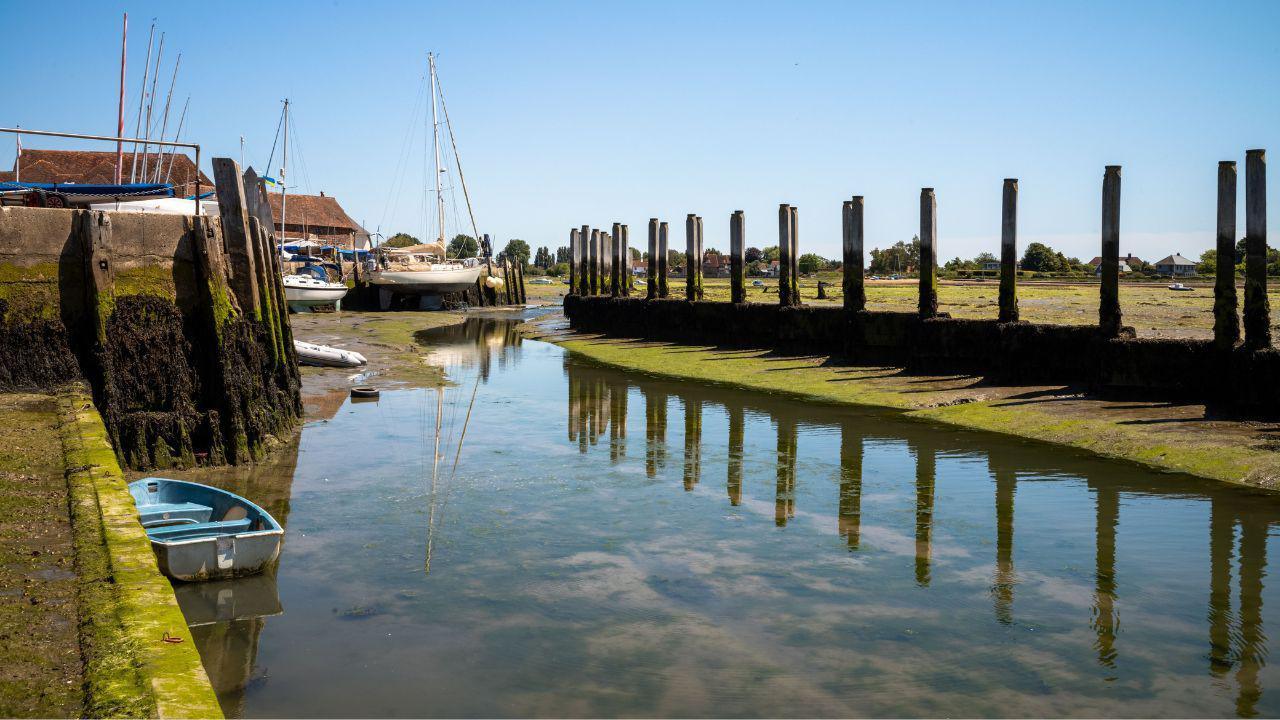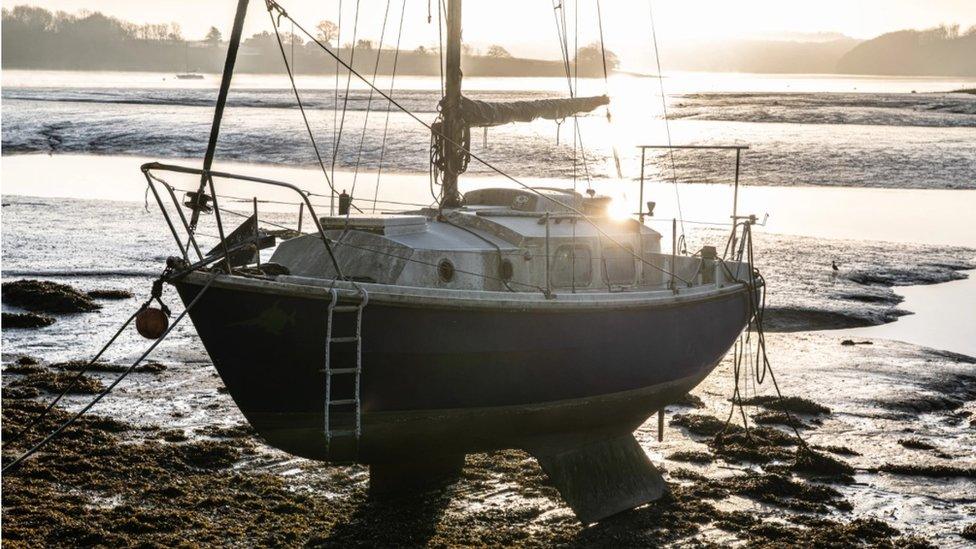Fibreglass found in oysters and mussels at harbour

Researchers detected glass reinforced plastic in the soft tissues of bivalves in Chichester Harbour
- Published
A “disturbing” level of fibreglass has been found in oysters and mussels, a new study has revealed.
Researchers from the University of Brighton detected glass reinforced plastic (GRP) in the soft tissues of bivalves collected near a boatyard in Chichester Harbour.
It was the first time fibreglass or GRP particles had been found entering the food chain, the study said.
Dr Corina Ciocan, principal lecturer in marine biology at the university, said: “It’s a stark reminder of the hidden dangers in our environment.”
The study revealed that GRP, which is used in boat manufacturing, was breaking down and contaminating coastal waters.
“This material, once thought to be durable and beneficial, is now causing unexpected harm to marine life,” the study said.
“It could also have significant implications for human health, given that these bivalves often end up on our plates.”
Researchers found 11,220 fibreglass particles per kilogram in oysters and 2,740 particles per kilogram in mussels.
Dr Ciocan added: “We must improve public access to slipways and commercial boat maintenance facilities.
“Creating a better ethos around end-of-life boat management is crucial to minimise further exposure and spread of these contaminants.”
Follow BBC Sussex on Facebook, external, on X, external, and on Instagram, external. Send your story ideas to southeasttoday@bbc.co.uk, external or WhatsApp us on 08081 002250.
Related topics
- Published3 July 2022
